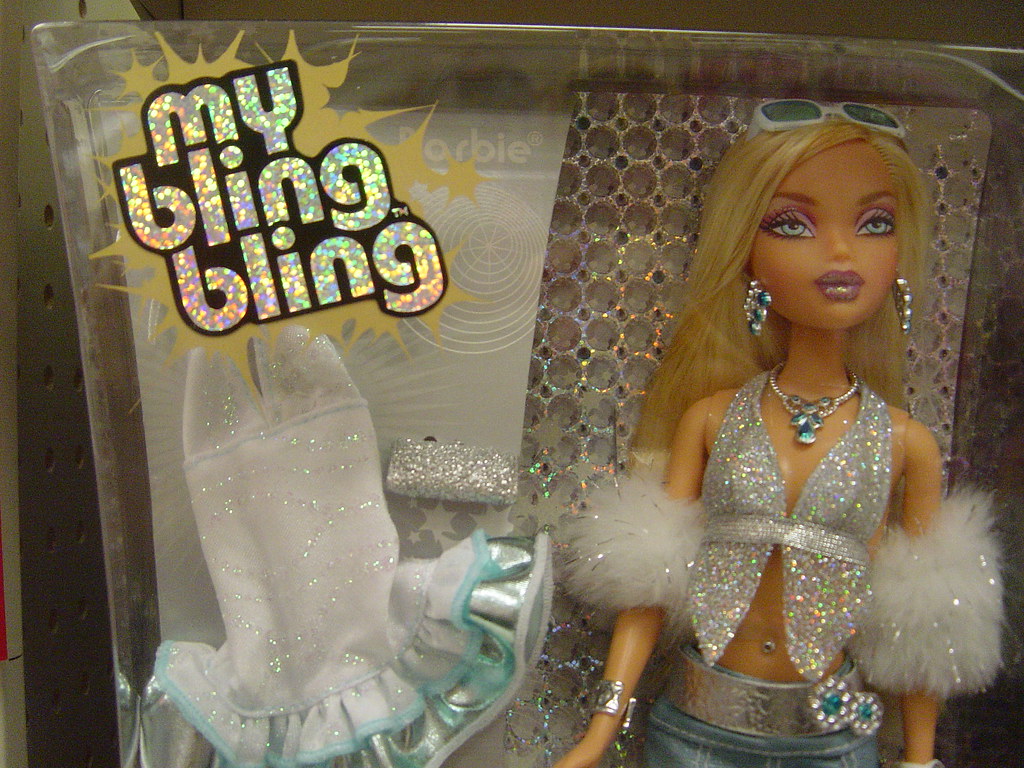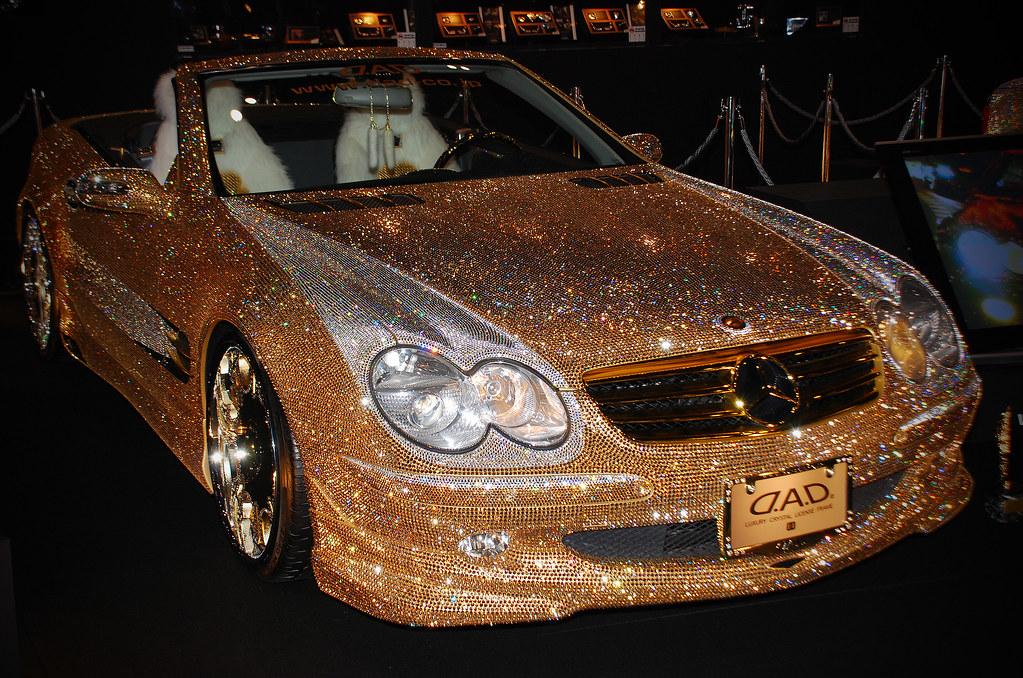Bling (also bling-bling) is a term for expensive, ostentatious jewelry that came from the world of rap music. It evolved to mean not only that type of over-the-top jewelry but also clothing and other accessories such as cell phones or tooth caps.
The term has even been used to describe things like cars with the noun being used as an adjective, as in "That car is really blinged out." It has also devolved to sometime mean the free things given out at events, even if they are not of great value.
Linguistically, "bling" is an onomatopoeia, like buzz, meow, boing or cuckoo. Some might call it an ideophone which are words that evoke an idea in sound, movement, color, shape, or action.
Bling was meant to evoke the sound of light reflecting off something shiny, especially valuables like gold or diamonds.
Although the term came into wide usage in the late 1980s, we can go back twenty years earlier to some TV advertising, such as toothpaste maker Ultra Brite, that used a bling sound effect. In ads that said "Ultrabrite gives your mouth...[insert bling sound]...sex appeal" the sound might be accompanied by a sparkle effect on the actor's teeth.
The word "bling" was used by some comedians, such as Martin Lawrence. He parodied the "Ultrabrite smile" by and vocalized the sound effect as "bling-bling" and "bling-blauw."
The Silvertones song "Bling Bling Christmas" is sometimes noted as the earliest known usage of the term, but it was also used in rap by Dana Dane in "Nightmares" in 1987 referring to the sound effect used on cartoon shows along with gold coins, money, jewelry or gems. The term probably went more public with Cash Money Millionaires' song "Bling Bling" in 1999.


No comments:
Post a Comment
All comments need to be approved by the admins. Spam will be deleted.